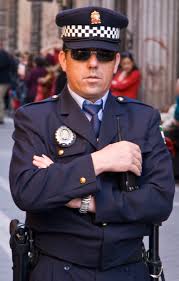officer
英 [ˈɒf.ɪ.sər]
美 [ˈɑː.fɪ.sɚ]
- n. 军官,警官;公务员,政府官员;船长
- vt. 指挥
- n. (Officer)人名;(英)奥菲瑟
使用频率:

记忆方法
将“officer”分解为“off”和“icer”。想象一个“icer”在“off”地(远离)做某事,比如一个警官(icer)在远离普通人的地方执行职责,这样可以帮助记住“officer”指的是官员或警官的意思。
以上内容由AI生成, 仅供参考和借鉴
中文词源
officer 官员
来自office,办公室。即坐办公室的人,后用于指官员。
英语词源
- officer (n.)
- early 14c., "one who holds an office" (originally a high office), from Old French oficier "officer, official" (early 14c.), from Medieval Latin officarius "an officer," from Latin officium "a service, a duty" (see office). The military sense is first recorded 1560s. Applied to petty officials of justice from 16c.; U.S. use in reference to policemen is from 1880s.
权威例句
- 1. He was returned to prison in 1977 for impersonating a police officer.
- 他1977年因冒充警官而再次入狱。
- 2. Secret Service officer Robin Thompson spoke on behalf of his colleagues.
- 特工处官员罗宾·汤普森代表他的同僚发表了讲话。
- 3. The Night Duty Officer was ready to clock off.
- 值夜班的警员准备打卡下班。
- 4. He got permission from his commanding officer to join me.
- 他得到指挥官的许可来与我会合。
- 5. One of the apprentices made an insulting remark to a passing officer.
- 其中一名学徒对着一名路过的警官说了一句侮辱他的话。